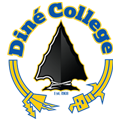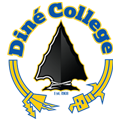Innovation Hub Faculty Development

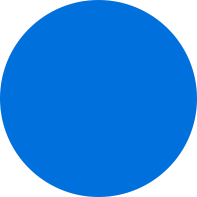

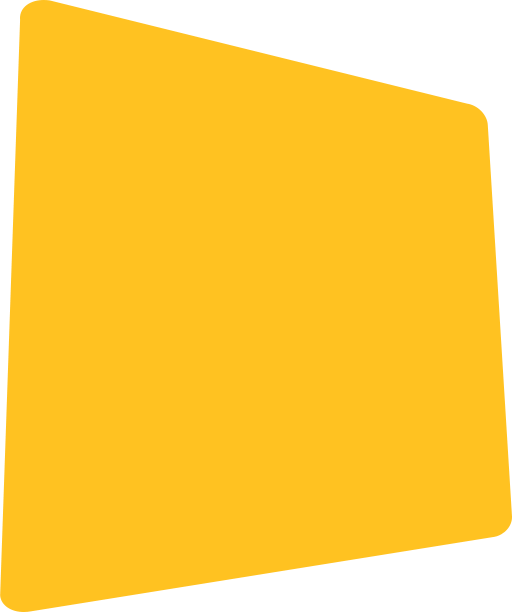

At Diné College we want to emphasize that we support and value our faculty. They are the backbone of this institution and without them we would not have students, and/or student success at the forefront of our college. On this page you will find faculty development opportunities such as; workshops, conferences, fellowships, grant opportunities, and free academic webinars to develop your teaching skills.
Faculty Academic Webinars
We encourage DC faculty to attend workshops and webinars that develop their teaching and learning. The webinars and some workshops listed below are free-to-all higher education faculty. You can register by clicking on the links below for more information. Every semester we plan on updating these opportunities for faculty. If you have any suggestions or recommendations on good webinars or workshops in the future, please let the professional development coordinator know, and she will provide all faculty with more information. WGU Academic Engagement Webinars (Free) Sign up for free monthly webinars today!
Sign up for free monthly webinars today!Free Webinar and Videos: www.wgu.edu/lp/webinar/academic-engagement/teaching-learning.html
ACUE Webinars (Free) ACUE webinars are one-hour, live discussions that include Q&A with participant and are recorded and hosted by ACUE. Webinar recordings are available on-demand for faculty through ACUE’s YouTube Channel.
Click to view the series of ACUE’s Free webinars on YouTube: www.youtube.com/playlist?list=PLmwZ2trWe1MgBUm0moEFbFTOTqmR9Ca9U Instructor Webinar Series
 More information: https://go.blackboard.com/Instructor-webinar-series
More information: https://go.blackboard.com/Instructor-webinar-series
Faculty Conferences
DC Faculty are encouraged to attend at least one conference per year. Here’s a list of faculty teaching and learning conferences that are upcoming for Spring 22’ semester. Please review them carefully by clicking on the link with more information. If you are able to attend, please notify your Dean a head of time to ensure proper planning. If you have questions please contact your professional development coordinator at: tlamotte-harvey@dinecollege.edu or you can call at: (928) 724-6972.
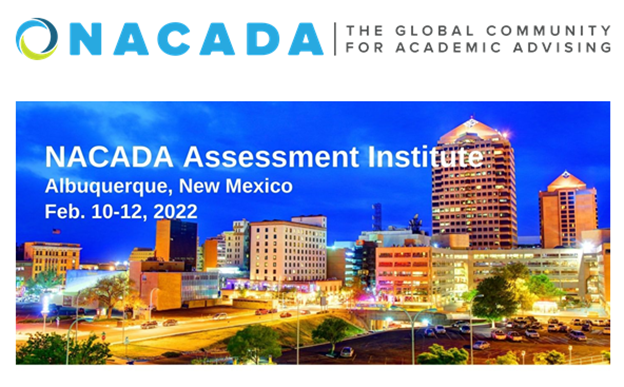
For more information: NACADA Assessment Institute
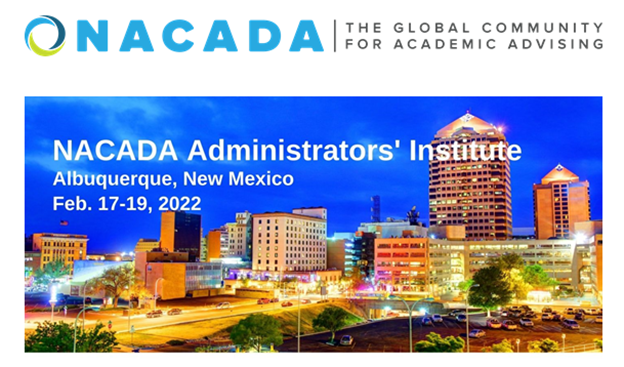
For more information: 20th Annual Administrators’ Institute
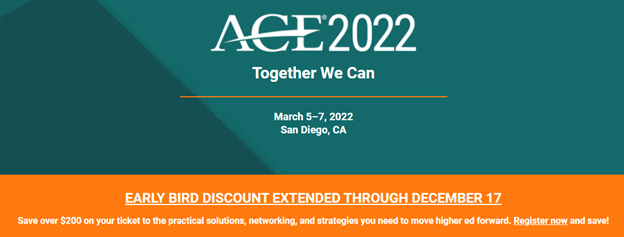
For more information: www.aceannualmeeting.org/event/1a0e1fa5-df16-47a3-b5c0-060d6021cfb3/summary
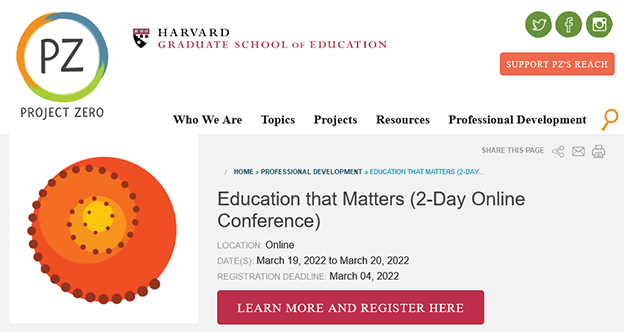
For more information: https://pz.harvard.edu/professional-development/events-institutes/education-that-matters-2-day-online-conference
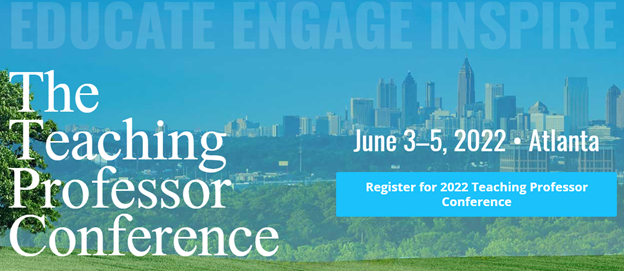
For more information: https://www.magnapubs.com/teaching-professor-conference/?st=ffsite
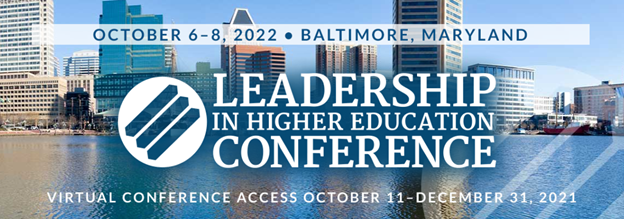
For more information: www.magnapubs.com/leadership-in-higher-education-conference/

For more information: https://mentor.unm.edu/conference (look for updates at this link)
NACADA’s 2022 Annual Conference
Building Bridges: Honoring our Past, Celebrating the Present, and Preparing for the Future
October 23-26, 2022 | Portland, Oregon | Oregon Convention Center
The conference theme encourages all of us to reflect on where we started and honor those who built the foundation for our academic advising careers in higher education. Furthermore, it gives us the opportunity to recognize the perseverance and dedication that advisors have given to this profession while also looking ahead to where our paths lead in furthering academic excellence.
For more information: https://nacada.ksu.edu/Events/Annual-Conference.aspx
For more information: www.magnapubs.com/national-conference-on-student-leadership/?st=FFwebsite
Faculty Fellowships
Most times when we’re following our academic goals and building upon our skills, we might need help financially, and these fellowships allow for you to improve your faculty development without digging into your budgets. American Indian College Fund (AICF) and other organizations have excellent opportunities for faculty development. Most opportunities listed below are from AICF for now, and the list will grow as the research for faculty fellowships continues each semester. Make note of dates and times for these fellowships, what is open and what is closing and it’s always good to prepare ahead of time.
Fellowships for TCU Faculty Members
The American Indian College Fund offers three fellowships for TCU faculty members. Fellowships applicants must:
- be a faculty member at a Tribal College or University (TCU).
- be adjunct/part-time instructors, administrators, or TCU leaders who teach at least one course.
- obtain administrative approval from their TCU administrators to take sufficient leave time to complete all requirements of the fellowship within the fellowship’s time limit. (A full sabbatical is not required, but the amount of appropriate release time to ensure successful completion of the program).
- sign an agreement stating they will continue teaching at a TCU for at least two years following the completion of the fellowship (or one year in the case of the pre-dissertation fellowship).
For more information: https://collegefund.org/research/faculty-development-applications/
Mellon Tribal College President Approval
The Andrew W. Mellon Foundation supports the American Indian College Fund’s goal to increase and enrich intellectual capacity at tribal colleges. Therefore, as tribal college president, the Fund requests your signature of approval for appropriate release time for this faculty applicant. The guidelines set forth by the Andrew W. Mellon Foundation stipulate that Mellon Fellows must dedicate the necessary release time to focus on meeting their fellowship commitment of completing their doctorate degree within a one-year time frame, ultimately to benefit the intellectual capital of participating tribal colleges and universities. By signing below, I hereby submit my approval for the named faculty applicant to be provided necessary release time to complete their research, dissertation and all requirements for their doctoral degree. I understand that the quarterly award payments will be made directly to the Mellon Fellow.
For more information: https://collegefund.org/research/faculty-development-applications/tribal-college-president-approval/
Mellon Faculty Career Enhancement Fellowship
Faculty who are “All But Dissertation” (ABD) in a Ph.D. program are eligible to apply. The amount of the Mellon Faculty Career Enhancement Fellowship award is $40,000 for a one-year period. It is expected that the fellow will be conferred their Ph.D. (or other terminal degree) by the end of this period.
For more information: https://collegefund.org/research/faculty-development-applications/mellon-faculty-career-enhancement-fellowship/
Mellon Master’s Fellowship
The Mellon Master’s Fellowship is for TCU faculty members and staff members with teaching responsibilities who are likely to become faculty may apply for up to $25,000 in assistance to complete master’s degrees. Preference is given to master’s study in the humanities and humanistic social sciences. For further information and application materials, check back here for future funding opportunities.
For more information: https://collegefund.org/research/faculty-development-applications/mellon-masters-fellowships-for-tcu-faculty-and-staff/
Mellon Graduate Credit Hours Fellowship
Provides funding for faculty seeking to complete 18 credit hours in their respective fields in order to meet recent accreditation requirements for highly qualified faculty (priority will be given to faculty at TCUs accredited by the Higher Learning Commission). Fellowships are awarded for a period of up to three consecutive semesters for each faculty member; the amounts received will be based on candidates’ necessary credits (minimum of 6 and maximum of 18), with an upper limit of $15,000.
Graduate Hours Fellowship Program is accepting applications on a rolling basis.
For further information please contact: Faculty Development Program Officer | (303) 426-8900
For more information: https://aicf.advancingcommunities.us/graduate-hours-program-for-tcu-faculty-members/
Nyswander Blanchard Grant Application
Recognizing the need to assist tribal college and university (TCU) faculty in the process of terminal degree attainment, the American Indian College Fund, with support and funding from American Indian College Fund Board Member Kim Blanchard and the Nyswander-Manson family, established the American Indian College Fund Pre-Dissertation Faculty Grant.
For more information: https://collegefund.org/research/faculty-development-applications/nyswander-blanchard-grant-application/
Grant Opportunities
Grant opportunities help you fund your research ideas and projects you want to complete in the future. It’s always good to prepare ahead of time and read through the information and to gain insight as to how you complete your project. You can research grants by searching via google, or by visiting local state agencies websites that offer grants. A few websites to search and start with would be: www.grants.gov or www.sba.gov.
Facilitating Research at Primarily Undergraduate Institutions: Research in Undergraduate Institutions (RUI) and Research Opportunity Awards
The Research in Undergraduate Institutions (RUI) and Research Opportunity Awards (ROA) funding opportunities support research by faculty members at predominantly undergraduate institutions (PUIs). RUI proposals support PUI faculty in research that engages them in their professional field(s), builds capacity for research at their home institution, and supports the integration of research and undergraduate education. ROAs typically allow faculty to work as visiting scientists at research intensive organizations where they collaborate with other NSF-supported Investigators.
Proposals Accepted Anytime
For more information: www.nsf.gov/pubs/2014/nsf14579/nsf14579.htm
NSF: Tribal Colleges and Universities Program (TCUP)
The Tribal Colleges and Universities Program (TCUP) provides awards to Tribal Colleges and Universities, Alaska Native-serving institutions, and Native Hawaiian-serving institutions to promote high quality science (including sociology, psychology, anthropology, economics, statistics, and other social and behavioral science as well as natural science and education disciplines), technology, engineering and mathematics (STEM) education, research, and outreach. Support is available to TCUP-eligible institutions (see the Additional Eligibility subsection of Section IV of this solicitation) for Instructional Capacity Excellence in TCUP Institutions (ICE-TI), Targeted STEM Infusion Projects (TSIP), Partnerships for Geoscience Education (PAGE), Broadening Participation Research in STEM Education (BPR), Small Grants for Research (SGR), and Preparing for TCUP Implementation (Pre-TI). Through these mechanisms, along with collaborations with other National Science Foundation (NSF) units and its work with other organizations, TCUP aims to increase Native individuals’ participation in STEM careers and the quality of STEM programs at TCUP-eligible institutions. TCUP strongly encourages the inclusion of activities that will benefit veterans.
Deadlines Differ for each category, please see announcement for due dates.
For more information: https://beta.nsf.gov/funding/opportunities/tribal-colleges-and-universities-program-tcup/
Mental Health Research Dissertation Grant to Enhance Workforce Diversity Funding Opportunity Number: PAR-18-894
The purpose of this Funding Opportunity Announcement (FOA) is to enhance the diversity of the mental health research workforce by providing dissertation awards in all research areas within the strategic priorities of the NIMH to individuals from backgrounds underrepresented in biomedical, behavioral, clinical and social sciences research. This award supports the completion of the doctoral research project.
Various Due Dates
For more information: https://grants.nih.gov/grants/guide/pa-files/PAR-18-894.html
Dine College Grant Information
D-U-N-S Number: 104974295
Grants.Gov UEI (unique entity identifier): KAAMMFK1JJL8
EIN: 86-0215931
Primary Contact/Grants Administrator: Amanda McNeill, IGO Grant Manager
Authorized Representative: Kim Jim, Compliance Officer
Address
Physical:
Ned Hatathlie Center
6th Floor
1 Circle Dr. Rte 12
PO Box C09
Tsaile, AZ 86556-0001
Mailing
Diné College
P.O Box C-08
Tsaile, AZ 86556
Phone:
(928) 724-6669
For more information: www.dinecollege.edu/about_dc/institutional-grants-sponsored-projects-office/
This website page is subject to change and will be updated as necessary. Workshops to apply for grants are available to all faculty, we just need a request sent to the professional development coordinator.
Learning Communities
Learning Communities are faculty-driven small groups that spend an academic year exploring a topic related to teaching and student success in higher education.
Faculty are invited to submit a proposal to start a Learning Community. A Learning Community (LC) is a cross-disciplinary, faculty-driven group of 6-12 members (which can include staff and graduate students as well) engaging in a yearlong program to promote the scholarship of teaching and learning. Submit an application for a Learning Community(LINK), and consult with
Join the Storytelling Diversity Learning Community(LINK)
Complicated circumstances require collaboration; the only way to become stronger teachers, who address challenging issues and who prepare our students to engage with such situations, is through a collaborative environment. Telling stories about one another helps us make sense of experience, and helps bridge gaps – a necessary tool to teach our students in today’s disconnected and strained socio-cultural environment.
Open to: Faculty/Staff/Grad Students
Quality Matters Training
Quality Matters Training is offered to all DC faculty who will be teaching online. This training will help build your expertise in teaching via online courses and we encourage you to complete all courses to be certified.
Improve Courses & Training by Building Expertise
Quality Matters online workshops help faculty, teachers and instructional designers grow beyond their current online learning expertise. Whether you are experienced or just entering online learning, your courses — and learners — will benefit from the application of QM Rubrics and course improvement tools. Workshops are available to both QM members and non-members, with significant cost-savings for members.
For more information: https://www.qualitymatters.org/professional-development/workshops
Faculty-Led Workshop(s)
We encourage DC faculty to teach a workshop based on their research area of interest. The goal is to learn from each other as well as provide interesting topics that make the college community use their Nitsáhákees (Thinking) to “think” and to activate everyone’s “Aha’” moment during these workshops. If you have an idea or a topic you want to teach – workshop wise – please contact the professional development coordinator to discuss ideas and next steps.
Diné Educational Philosophy (DEP)Courses
DEP Courses are a type of Faculty Led-Workshop that begins this month. However, these courses will lead to a DEP certification and faculty will be evaluated by their supervisors for progress each semester.
The first course will begin on January 21st, 2022 at 9AM. This is a course specifically designed to teach about Sa’ah Naaghai Bik’eh Hozhoo (SNBH) knowledge and living systems. This is for faculty who want to incorporate the Diné teachings into their syllabus and to learn about cultural sensitivity topics such as; understanding traditional knowledge (sacred mountains), understanding LGBTQ, students dealing with PTSD, understanding Diné students with disabilities etc.
There are many topics that relate to our Diné students and how we can best serve them. The Diné Studies faculty have put together a list of those sensitive topics and a syllabus will be given at the first class. Below are a few FAQ’s and the flyer that was sent to all faculty.
FAQ’s:
How many courses do I have to take in order to be certified in DEP?
There are 3 courses to earn a certificate of completion for DEP certification:
- NIS 294 Diné Educational Philosophy I (3) Introduces SNBH teachings of the Diné knowledge and living systems. Relates them to curricula, pedagogy, and academic life in higher education learning. Allows learning of the basic Diné Educational Philosophy in using the traditional and Western curriculum to advance quality student learning.
- NIS 295 Diné Educational Philosophy II (3) Prerequisite: NIS 294. This course designed to develop intermediate-level knowledge in using SNBH components to advance quality student learning. Facilitates application process for successful integration into the course content.
- NIS 296 Diné Educational Philosophy III (3) Prerequisite: NIS 295. The course information will be added by fall 2022.
When are all courses scheduled?
This varies from semester to semester, since the Diné studies faculty are co-teaching each semester, we will update those dates/times as we go each semester. As for this spring semester, it will be held on Friday’s, in-person, and from 9am-4pm.
Who is Teaching these courses for Spring 2022?
OJ Vicenti and Peter Thomas (Diné Studies Faculty)
How many courses are offered this Spring Semester?
There are 8 courses being offered, each on a Friday from 9AM to 4PM.
What are the dates for each course this spring 2022?
- January 21, 2022
- February 4th, 2022
- February 18th, 2022
- March 4th, 2022
- March 18th, 2022
- April 1st, 2022
- April 15th, 2022
- April 29th, 2022
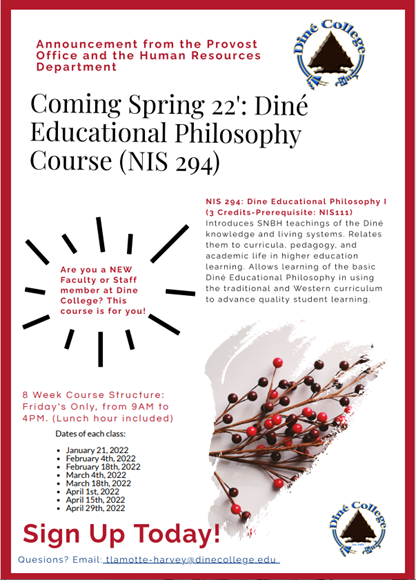
We welcome you to attend any workshops of interest! Once you register, we encourage you to record the date/time in your own calendar as a reminder. If for some reason you realize that you cannot attend, please cancel by contacting Terra Lamotte-Harvey at tlamotte-harvey@dinecollege.edu.
Diné College Center for Excellence in Teaching and Learning
1 Circle Dr.
Route 12
Tsaile, AZ 86556
Location Map
(928) 724-6600
